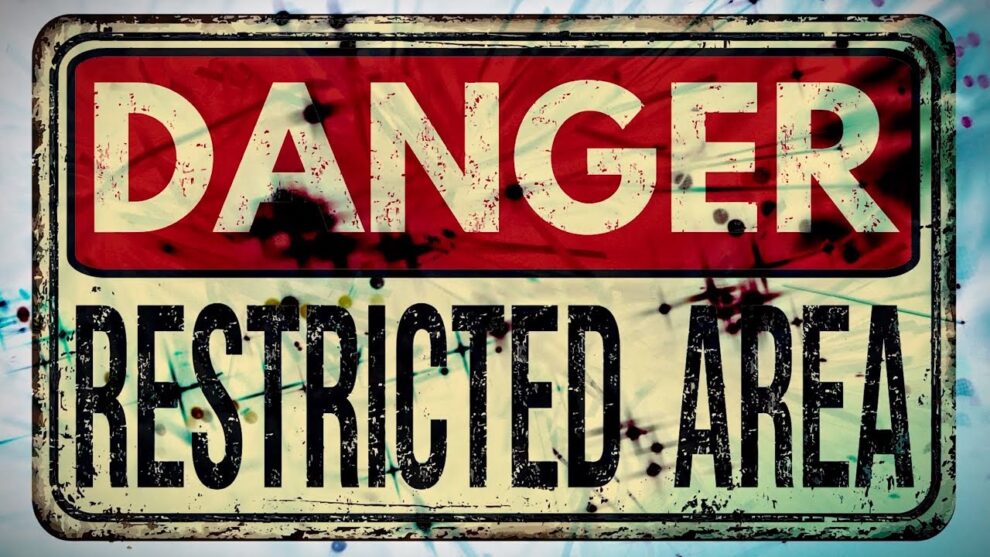“Whatcha doing?”
That’s all it takes. If you do any kind of creative work, then you know exactly what I’m talking about. It’s those interruptions that break into whatever it is that you happen to be in deep thought about, completely derailing a train of thought that you’ve spent minutes or hours building. Photographers, writers, even programmers — we all have our stories about interrupted trains of thought.
The hardest part of it is, the people responsible for the derails are all well-meaning. Most of the time, it’s a spouse, a child. If you’re at work, then it’s your friendly coworker just popping his or her head into your office to say hello. These people often utterly unaware of the time they’ve cost you with one little interruption.
And just how much time does an interruption cost you? Well, there is all kinds of research on the subject, and the consensus seems to be that interruptions result in an enormous amount of lost time. The answer differs from one person to the next, but to answer it for yourself, think about when you started down a particular train of thought. You aren’t just losing the time spent on the distraction. You’re also losing everything leading up to that distraction.
So, if you’re a photographer who has been staring at a composition for an hour, attempting to reimagine elements in different parts of the frame or a whole new color scheme, an interruption not only cost you a few minutes, but it also cost you that hour that you’ve spent thinking. The same is true if you’re a writer, watching scenes play out in your mind’s eye. Someone walks into your office to say something and all those scenes you’ve been pondering for however long, they’re all gone.
It’s a little jarring! If we imagine ourselves just like a comic strip, with little thought bubbles over our heads, the feeling is the same as if someone just pricked that thought bubble with a needle. Poof! All the thoughts you’ve been turning over for the last while vanish, many of them never to be seen again.
What is the solution? Well, it depends on who is doing the interrupting, of course, but in general, the solution is going to depend in large part on you and how you communicate with those around you. Let me share a few tips that may help you minimize interruptions during your creative time — and hopefully help you avoid hurt feelings between you and your loved ones and coworkers.
Communicate!
Communication is the number one best way to help alleviate those interruptions that break up your train of thought. If your creative time is at home, then set clear boundaries with your loved ones. Let them know specific times when you’d rather not be disturbed (unless it’s an emergency), and make sure that they understand the thought processes that are happening in your head when you’re doing creative work.
Explaining your thought process is important. For most people that aren’t actively engaged in creative work, they think nothing of stepping into someone’s office to make a quick remark. After all, if you made a quick remark to them, chances are, you’d not disturb what they’re doing. What’s more, if you’re sitting in front of a computer, simply staring at the monitor, people may not think you’re doing anything at all, when in actuality, your brain is working quite hard. So make it clear that you spend a lot of time thinking and imagining to help people understand why interruptions are hurtful to the creative process.
Create a Private Workspace
It’s tempting to do your thinking on the sofa, notebook or laptop in hand, or to sit out on the porch and do your thinking and imagining. But, as much as these places seem like great places to do your thinking, they aren’t, not always. If you’re relaxed on the sofa, lost in thought, there’s nothing to indicate that you’re not simply relaxing. And if you’re kicked back on the front porch, your neighbors have no idea that you’re actually mulling things over, so they won’t hesitate to wander over for a chat. Better to have an in-home office or a designated space for your work. That way, when you’re in the space you’ve created, people know that you’re busy.
Put Your Monitor Where People Can See It
Creative work is something that people most often like to do in private. There are few things that grate on the nerves more than someone looking over your shoulder at what you are working on. Part of that is because, in the early stages, the work is still incomplete. You may not want people looking at the unfinished product, particularly if it has rough edges or errors yet.
But even with that, it’s still a wise idea to place your monitor where people can see it, at least in your home workspace. That way, if a loved one happens to pop into your workspace, he or she can look at the monitor to see if it’s appropriate to interrupt. If you’ve got digital negatives open, then that is a signal that questions about what to eat for dinner can be put on hold. But if you’re busy watching Youtube videos, then your loved one knows that now is a good time to say something.
When in Doubt, Text
It sounds strange, maybe even a little bit silly, to text your husband or wife while you live in the same house. But this can work wonders, especially if both of you do creative jobs that require a lot of time to think. Instead of shouting across the house about the day to day things, like what to eat for lunch or when to pull the clothes out of the dryer, send a text. Your spouse can look at it when he or she comes to a stopping point, and in the meantime, the text can be put off for a while so that the train of thought remains unbroken.
In the end, communication, and finding ways to communicate creatively, is the key. Have an honest chat with the people in your life about what it means to be interrupted when you’re thinking deeply on a creative project, then work together to find solutions that will minimize disruptions. Maybe some of the solutions listed here will work for you, or maybe there is an even better solution for you and your family.






